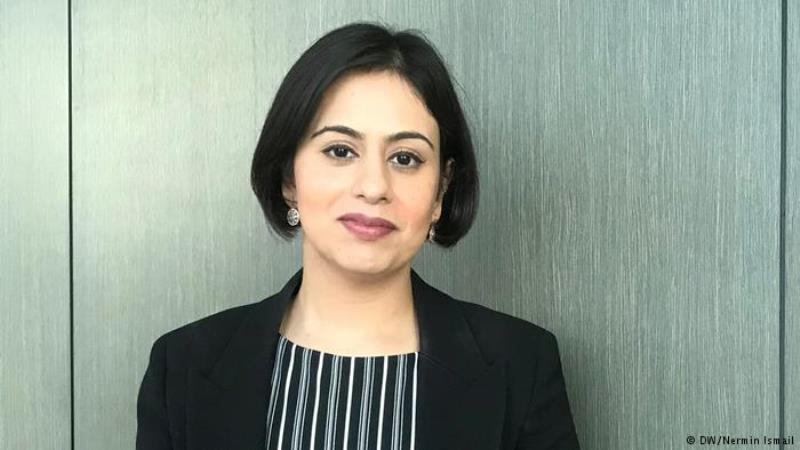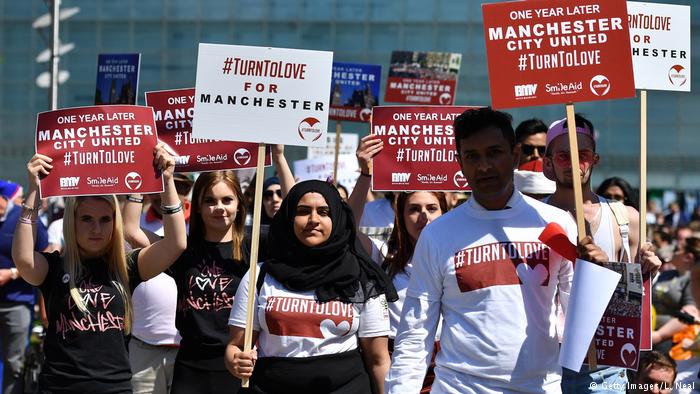"Weʹre living through an era of extremism"

In January 2018, Prime Minister Theresa May appointed you Lead Commissioner for Countering Extremism. How do you intend combatting extremism in the UK?
Sara Khan: Extremism is a problem for society as a whole, hence it requires a solution for society as a whole. Everyone has a role to play, schools, government, civil society, religious leaders. As yet, an across-the board response does not exist, which explains our current focus. Since the Commission is new, our first task is to foster awareness.
What specific objectives are you pursuing?
Khan: Firstly, we need to engage in outreach. I have been to some 30 towns and villages in England and Wales. I have spoken to thousands of academics, civil society groups and government representatives to better understand the challenge.
The second goal is a study. Currently there is no comprehensive study into extremism in the UK that could provide us with an overview of the problem. Weʹre interested in public perception; we want to examine the tactics of the extremists and the damage they do. We have also set up a counselling centre for this purpose. What is crucial, however, are the potential responses. We intend to make some initial recommendations and draw up a programme based on what we learn.

What exactly are the challenges facing Britain when it comes to extremism?
Khan: There are many different types of extremism in Britain. But some are more prominent and more dangerous than others. Over the last two years, we have witnessed a sharp rise in right-wing extremism. Islamist extremism is also a big issue. In 2018 alone we had five terrorist attacks, four of which were Islamist, one right-wing. But there is also left-wing extremism, extremist groups within the Sikh community or among Jewish groups.
To believe that the only extremists are Islamists is fundamentally wrong. Extremism can come from any political ideology or religion and can affect any group around the world. Extremism of all kinds is currently increasing – from the neo-Nazis in Germany and the Hindu nationalists in India to Muslim fundamentalists.
What do all these extremists have in common?
Khan: Many extremist ideologies promote the "us" versus "them" mind-set, fomenting hate against other groups and spreading racism. Extremists do not believe in universal human rights. They attack people because they are supposedly different. Extremists are against diversity in society. That is why we must defend these values, human rights, equality of all people and plurality.What role do women play in this struggle?
Khan: Empowering women has consequences for the whole country. Women are usually passionate about fighting extremism because they can see the impact of extremist ideas in their own families. The women I meet in this context are always very courageous.
For some time, we have been running special programmes for Muslim women in which we have, for example, provided them with theological counterarguments. When women participate, this has an impact on society as a whole. In 2015, when the IS proclaimed its caliphate, we conducted an anti-IS campaign. Women and mothers were the focus. We gave them the tools to protect their children from these ideologies. It is important that when they encounter an imam who preaches hatred, they donʹt just ignore it, but do something about it.
Eight hundred and fifty British joined IS and about half have returned. Why are young people radicalising in Britain?
Khan: The reasons are many and varied; they may be personal or social. But it's mostly about ideologies, extremist propaganda, identity and belonging. Ignorance – that is, not knowing the counterarguments also plays a role. Social media are also crucial. It's no different in Britain than elsewhere. The tenor of public discourse is divisive and characterised by a lack of respect. Dialogue, listening to different opinions and perspectives can have a hugely beneficial effect.
What do you think the future holds? Will this resurgence in extremism soon be over?
Khan: Weʹre living through an era of extremism. When we look at the world situation, it is extremely worrying. I don't believe things are going to improve any time soon. So we must do everything we can to counter it. Individual countries must ensure equality, diversity and human rights for all their citizens. These values are crucial because they are threatened by extremists.
Have you been targeted by extremists yourself?
Khan: It goes with the territory – you get used to it over time. But it only happens because extremists donʹt want us to do what we do. That simply means we have to carry on and ignore them. This work is simply too important not to be done. It affects us all.
Interview conducted by Nermin Ismail
© Deutsche Welle 2019
Sara Khan is Lead Commissioner for Countering Extremism for England and Wales. Prior to this role she co-founded Inspire, a non-governmental organisation that aims to counter extremism and promote gender equality. She is also the author of the book "The Battle for British Islam: Reclaiming Muslim Identity from Extremism."
